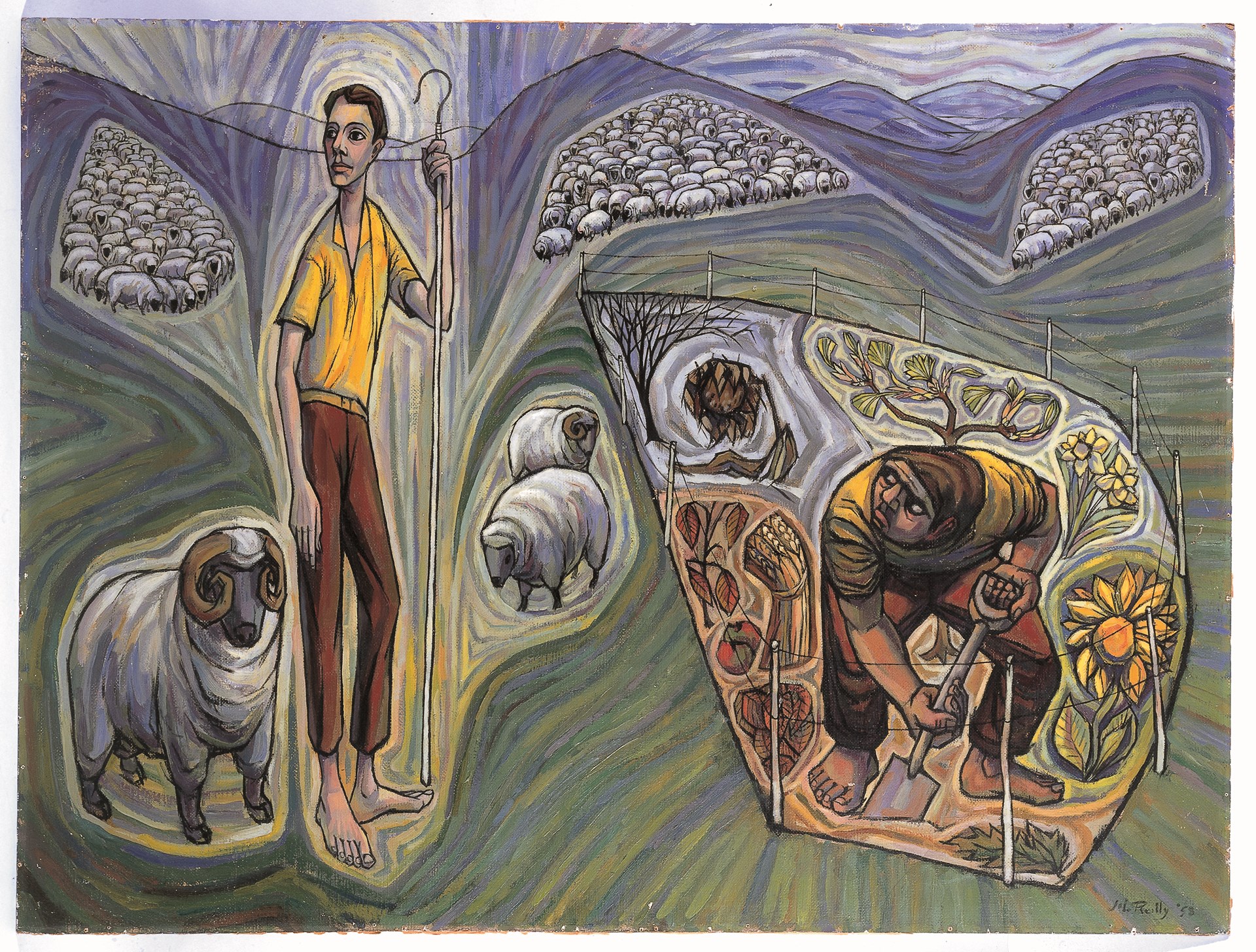John Reilly
There on the left hand side of this image is Abel: tall, handsome, the owner of multiple flocks of sheep, bathed in light from above. Here is the one favoured by God. Exuding calm confidence as he looks into the distance.
On the other side is Cain: short and stocky, wearing the same clothes as his brother, but covered in dark shadows. He is working hard on his land – through all the seasons, shown on his fenced-in plot of land. He is good at it; the flowers bloom, the corn and the apples have ripened and been harvested. But no look of confidence or pleasure here, the favour of God lacking with no explanation. Just an envious look up to his brother.
It is a strange story – two brothers who both appear to do well and honour God, and yet one has his gift accepted and the other not, seemingly for no reason. It is strange that this arbitrariness is ascribed to God. But then the Old Testament ascribes all sorts of acts and emotions to God which we wouldn’t today, in the light of the New Testament. Perhaps the arbitrariness ascribed to God is actually the arbitrariness of life: there are those who are the lucky ones, for whom everything falls into place. And then there are the unlucky ones, who might do everything right, but when accidents, jobs cuts or illness strike, they always seem to be at the receiving end. There are those whom life smiles upon and those upon whom it doesn’t. Those who feel bathed in a glow of light and those who feel a shadow upon them.
What comes next? What do we do when the shadow falls on us? Do we look at others with envy and resentment? Do we build a fence around ourselves to keep them out and separate ourselves off? Or do we feel we need to build the fence to keep ourselves in – because who knows what we might do otherwise? Or is that fence simply a symbol of the division between us and them, between Cain and Abel?
“Sin wants to rule you, but you must overcome it”, God tells Cain. Easier said than done. Cain doesn’t manage to overcome it. He lets his emotions get the better of him. Can we manage to nip our destructive emotions in the bud? Like the weeds in our fields and flowerbeds?
And what of Abel? Of course ultimately, he is the unlucky one; he is the one who dies prematurely. Is there anything he could have done to change this? Here he seems wholly oblivious to his brother – almost arrogant and self-satisfied. Is he fanning the flames of the emotions that drive Cain to kill him? Could he not have gone up to the fence? Could he not have found a way to share his blessing with his brother with grace? Would it have made a difference? We don’t know. The decision to kill was Cain’s. But “No man is an island […] Any man’s death diminishes me, because I am involved in mankind, and therefore never send to know for whom the bell tolls; it tolls for thee.” (John Donne)
Biblical References
Cain and Abel (Genesis 4:1-16)

Leave a Reply